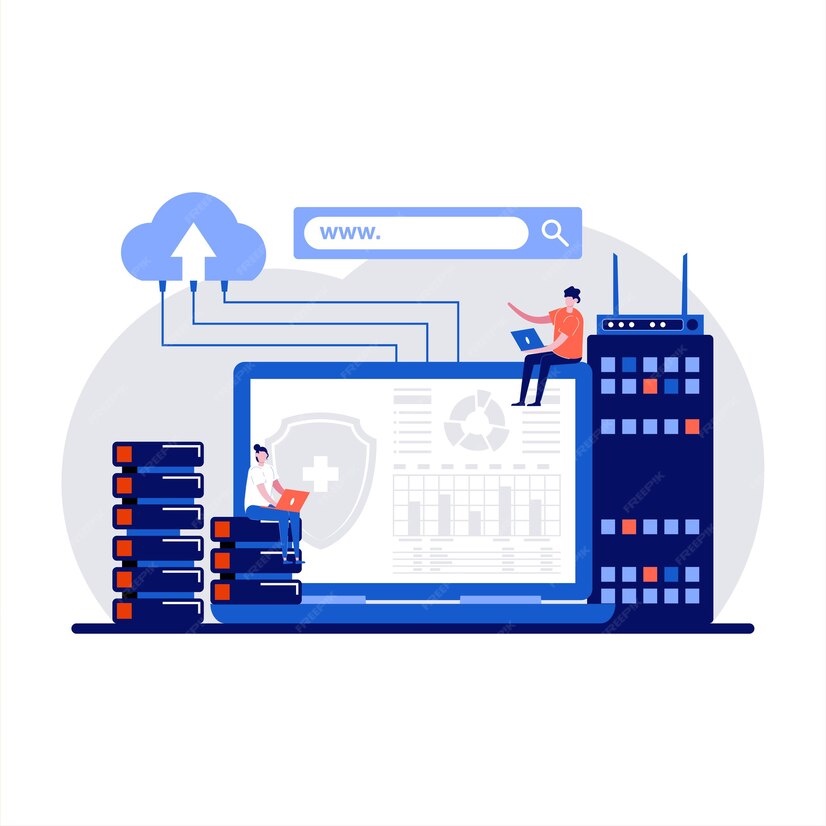In the rapidly evolving landscape of technology, Cloud Servers have emerged as a cornerstone of modern computing. Understanding the intricacies of these servers is essential for businesses and individuals seeking scalable, flexible, and cost-effective solutions. Let's embark on a journey to demystify Cloud Servers, exploring their definitions, types, and the fascinating inner workings that power our digital world.
Defining Cloud Servers:
At its core, a Cloud Server is a virtualized server hosted on a cloud computing infrastructure. This infrastructure spans across multiple physical servers and data centers, creating a decentralized and resilient environment. Unlike traditional servers, which are confined to a single physical machine, Cloud Servers leverage the power of virtualization to provide on-demand resources.
Types of Cloud Servers:
- Public Cloud Servers:
Public Cloud Servers are accessible to the general public and are owned and operated by third-party service providers. These servers offer a scalable and cost-effective solution, making them ideal for startups and businesses with fluctuating workloads.
- Private Cloud Servers:
Private Cloud Servers, on the other hand, are dedicated to a single organization. They provide enhanced security and control, making them suitable for enterprises with strict compliance requirements and sensitive data.
- Hybrid Cloud Servers:
Hybrid Cloud Servers combine elements of both public and private clouds, allowing data and applications to be shared between them. This flexibility enables organizations to optimize their infrastructure based on specific needs and requirements.
Inner Workings of Cloud Servers:
Cloud Servers operate based on a virtualized environment created by hypervisors. These hypervisors, also known as Virtual Machine Monitors (VMMs), enable the creation and management of multiple virtual machines (VMs) on a single physical server. Each VM operates independently, with its own operating system and resources.
The allocation of resources is dynamic and can be adjusted in real-time based on the workload. This elasticity is a key advantage of Cloud Servers, as it allows users to scale their computing resources up or down as needed, ensuring optimal performance and cost-efficiency.
Choosing the Right Cloud Computing Course:
Given the paramount importance of Cloud Computing in today's digital landscape, individuals and professionals alike are seeking quality education to enhance their skills. Enrolling in the best Cloud Computing Course is crucial for staying competitive in the job market.
A reputable Cloud Computing Training Institute in Banagalore can provide comprehensive training in various aspects of cloud computing, including server management, security protocols, and optimization strategies. By obtaining a Cloud Computing Certification through a recognized training course, individuals can validate their expertise and stand out in the rapidly growing field of cloud technology.
EndNote:
In conclusion, Cloud Servers represent a revolutionary paradigm shift in computing. Their virtualized nature, coupled with the flexibility of public, private, and hybrid options, makes them a cornerstone for businesses aiming to thrive in the digital era. Aspiring professionals in this field should explore the best Cloud Computing Courses offered by reputable institutes to stay ahead in this dynamic and ever-expanding industry. Cloud Computing Training Courses in Chennai are the gateway to unlocking the full potential of cloud technology, empowering individuals to contribute meaningfully to the future of digital innovation.


No comments yet